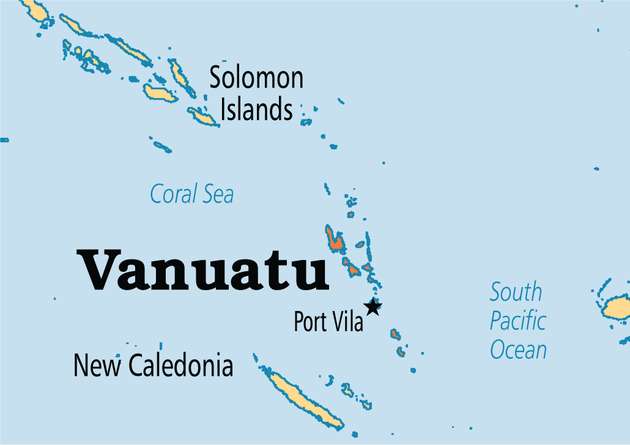Navigation
Install the app
How to install the app on iOS
Follow along with the video below to see how to install our site as a web app on your home screen.

Note: This feature currently requires accessing the site using the built-in Safari browser.
More options
You are using an out of date browser. It may not display this or other websites correctly.
You should upgrade or use an alternative browser.
You should upgrade or use an alternative browser.
the godfather of global warming
- Thread starter Wolfstrike
- Start date
Granny says, "Dat's right - earth bein' outta balance `causin' earthquakes too...

NASA: Global warming is now changing how Earth wobbles
April 8, 2016 | WASHINGTON (AP) — Global warming is shifting the way the Earth wobbles on its polar axis, a new NASA study finds.
See also:
Vanuatu hit by third strong earthquake in five days
Thursday 7th April, 2016 – The U.S. Geological Survey reported a third earthquake that struck the Pacific Island of Vanuatu in merely five days.
NASA: Global warming is now changing how Earth wobbles
April 8, 2016 | WASHINGTON (AP) — Global warming is shifting the way the Earth wobbles on its polar axis, a new NASA study finds.
Melting ice sheets — especially in Greenland — are changing the distribution of weight on Earth. And that has caused both the North Pole and the wobble, which is called polar motion, to change course, according to a study published Friday in the journal Science Advances. Scientists and navigators have been accurately measuring the true pole and polar motion since 1899 and for almost the entire 20th century they migrated a bit toward Canada. But that has changed with this century and now it's moving toward England, said study lead author Surendra Adhikari at NASA's Jet Propulsion Lab. "The recent shift from the 20th-century direction is very dramatic," Adhikari said.

Drops of water fall from a melting iceberg near Nuuk, Greenland. Global warming is shifting the way the Earth wobbles on its polar axis, a new NASA study finds. Melting ice sheets, especially in Greenland, are changing the distribution of weight on Earth. And that has caused both the North Pole and the wobble, which is called polar motion, to change course, according to a study published Friday
While scientists say the shift is harmless, it is meaningful. Jonathan Overpeck, professor of geosciences at the University of Arizona who wasn't part of the study, said "this highlights how real and profoundly large an impact humans are having on the planet." Since 2003, Greenland has lost on average more than 600 trillion pounds of ice a year and that affects the way the Earth wobbles in a manner similar to a figure skater lifting one leg while spinning, said NASA scientist Eirk Ivins, the study's co-author.
Ivins said he likes to think of it as a billion trucks each year dumping ice out of Greenland. On top of that, West Antarctica loses 275 trillion pounds of ice and East Antarctica gains about 165 trillion pounds of ice yearly, helping tilt the wobble further, Ivins said. They all combine to pull polar motion toward the east, Adhikari said. Jianli Chen, a senior research scientist at the University of Texas' Center for Space Research, first attributed the pole shift to climate change in 2013 and he said this new study takes his work a step further. "There is nothing to worry about," said Chen, who wasn't part of the NASA study. "It is just another interesting effect of climate change."
NASA: Global warming is now changing how Earth wobbles
See also:
Vanuatu hit by third strong earthquake in five days
Thursday 7th April, 2016 – The U.S. Geological Survey reported a third earthquake that struck the Pacific Island of Vanuatu in merely five days.
The group reported that the most recent one was a 6.9 magnitude earthquake that hit the island nation on April 7, 2016, however, no major damages or casualties have been reported by the local authorities. The U.S. Geological Survey further pointed out that the quake is said to have struck 100 kilometers west of the village of Sola, and 460 kilometers northwest of Vanuatu’s capital, Port Vila. It added that the quake struck at a depth of 33 kilometers. This quake is the third in a series of earthquakes of the same magnitude that have been reported in the region.

Shadrack Welegtabit, director of Vanuatu’s National Disaster Management Office reportedly told the local media, “We are not sure what has triggered the recent spate of earthquakes.” Welegtabit added that officials had not received any reports of injuries and confirmed that the temblor was not felt in the capital.
Although earthquakes are a common threat to the Island, The Pacific Tsunami Warning Center has ruled out any immediate tsunami warning, triggered by the quake. Reports further explained that earthquakes of magnitude 6.5 to 7.5 are less likely to provoke destructive Tsunamis, however changes in the sea level were clearly visible.
Vanuatu hit by third strong earthquake in five days
Similar threads
- Replies
- 8
- Views
- 96
- Replies
- 2
- Views
- 89
- Replies
- 19
- Views
- 273
Latest Discussions
- Replies
- 49
- Views
- 612
- Replies
- 172
- Views
- 986
- Replies
- 229
- Views
- 1K
- Replies
- 103
- Views
- 786
Forum List
-
-
-
-
-
Political Satire 8093
-
-
-
-
-
-
-
-
-
-
-
-
-
-
-
-
-
-
-
ObamaCare 781
-
-
-
-
-
-
-
-
-
-
-
Member Usernotes 471
-
-
-
-
-
-
-
-
-
-
